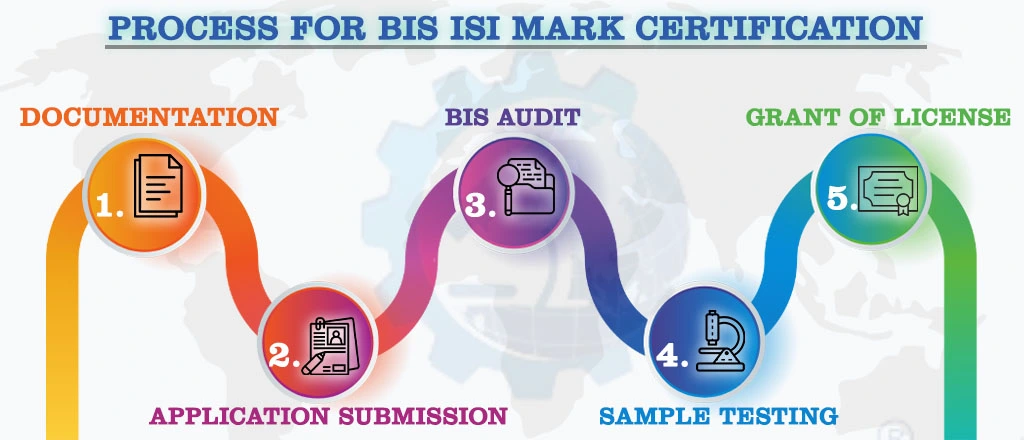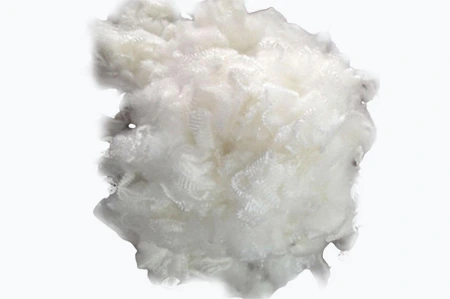BIS CERTIFICATION FOR POLYESTER STAPLE FIBRES
IS 17263: 2019
In this competitive scenario, it isn't easy to survive in the market without a standard quality and certified product. BIS license may also be required to sell products in the Indian market.
To get BIS certification and produce a standard quality product, the manufacturer must ensure that their product must follow the specified Indian standard.
Let's take a closer look at IS 17263: 2019 for Polyester Staple Fibres.
IS 17263: 2019 covers Polyester Staple Fibres. The Bureau of Indian Standards adopted this Indian Standard after the Textile Division Council approved the draft finalized by the Man-Made Fibres, Cotton, and Their Products Sectional Committee. PSF is a type of polyester fibre that is produced directly from poly terephthalic acid (PTA) and mono ethylene glycol (MEG) or polyester (PET) chips or recycled PET bottle flakes. Virgin PSF is PSF made from PTA and MEG or PET chips. Recycled PSF is PSF made from recycled PET flakes.
This standard specifies requirements for all types of polyester staple fibres (PSF), such as virgin fibres, dope dyed fibres, cationic dyeable fibres, and other polyester specialty fibres, such as spun lace fibres, slick fibres: antimicrobial fibres, nonwoven/filling fibres, flame retardant fibres, siliconized fibres, and micro fibres, and so on, for various end uses. This standard does not cover fibres for use in cement matrices for construction work.
Classification of staple fibre
The manufacturer must declare the classification of staple fibre as described below.
- Based on Cross Section, For Example, Circular, Profiled
- Based on Cross-Sectional Area, For Example Solid, Hollow
- Based on Multi-Component Fibres, For Example, Concentric Cover-Core, Matrix
- Based on Fibre Linear Density, For Example, Coarse, medium-fine, fine, micro, super-microfibres
The polyester fibre shall be identified as per confirmatory and microscopic tests specified in IS 667 and based on parameters defined in this standard. The polyester staple fibre must meet the physical and chemical requirements specified in this standard. When tested using the method specified in Annex C of IS 16481, all virgin polyester staple fibres must have an isophthalic acid content zero. The polyester fibre must be free of major defects.
Polyester staple fibres (PSF) may also meet the environmental requirements outlined in this standard. The tests specified in the standard must be carried out according to the specifications in a properly equipped and staffed laboratory.
TESTS
The test shall be carried out to determine the following according to the method specified.
- Test for Shrinkage of single polyester staple fibre
- Test for crimp properties of PSF and fibre fill/nonwoven fibres
- Test for measurement of percent silicone on fibre
- Moisture content test
- Phosphorus content test
- Antimony content in polyester
- The hollowness of hollow fibre
- Sinking time for spunlace fibre
- Colour strength of the dope dyed product
- Titanium dioxide in polymer
Packing and Marking shall be done in accordance with IS 17263: 2019. Each bale of PSF shall be marked with information as specified in this standard. Conforming to the requirements of this standard, the product(s) may be certified under the provisions of the Bureau of Indian Standards Act, 2016 and the Rules and Regulations framed thereunder, and the product(s) may be marked with the Standard Mark (ISI Mark). The Manufacturer must obtain a BIS license from the Bureau of Indian Standards to use a standard mark (ISI Mark). The BIS grants a license based on a successful assessment of manufacturing infrastructure, quality control and testing capabilities, and production process.
Latest QCO for Polyester Staple Fibres IS 17263: 2019

NOTE:
For Detailed Information about the Procedure for BIS ISI Certification
Visit :
• ISI Mark Certification for Domestic Manufacturers• ISI Mark Certification for Foreign Manufacturers
Conclusion:
If a product falls under the scope of the BIS Conformity Assessment Scheme, All the manufacturers, importers, and foreign entities must obtain BIS ISI Certification. The Bureau may cancel the License if the product fails to meet certification requirements.
Aleph INDIA has been serving the industry as a single-window operator for all product regulatory compliance. We can assist importers or manufacturers in meeting all criteria for importing or selling a product in the Indian market.
International Audits & Participation
Testimonials
BIS REGISTRATION FOR ELECTRONIC & IT PRODUCT
In the era of globalization, world trade is growing rapidly and henceforth, Manufacturing and Import/Export businesses are also growing drastically...View More
BIS CERTIFICATE FOR FOREIGN MANUFACTURER
The Economy of India-the fastest developing economy on the globe with the capabilities that help it matches up with the biggest international...View More
PRODUCT CERTIFICATION SCHEME (ISI MARK) FOR DOMESTIC MANUFACTURERS
Anything a person buys from food to cars, clothes to electronics, branded to unnamed products there is always a question that wanders in one’s...View More
WIRELESS PLANNING AND COORDINATION (WPC)
WPC: Wireless means communication done from one point to another point without the wires and cables. Electromagnetic waves carry the ...View More
BUREAU OF ENERGY EFFICIENCY (BEE) CERTIFICATE
BEE CERTIFICATE: Energy is the future, and its conservation is the way of the bright future. Everyone claims the environment is important...View More
E-WASTE MANAGEMENT
E-waste is one of the world's fastest-growing trash streams. We currently manufacture almost 50 million tones of it each year...View More
Request a call back.
Would you like to speak to one of our Senior Technical advisers over the phone? Just submit your details and we’ll be in touch shortly. You can also email us if you would prefer.
BIS REGISTRATION FOR ELECTRONIC & IT PRODUCT
In the era of globalization, world trade is growing rapidly and henceforth, Manufacturing and Import/Export businesses are also growing drastically...View More
BIS CERTIFICATE FOR FOREIGN MANUFACTURER
The Economy of India-the fastest developing economy on the globe with the capabilities that help it matches up with the biggest international...View More
PRODUCT CERTIFICATION SCHEME (ISI MARK) FOR DOMESTIC MANUFACTURERS
Anything a person buys from food to cars, clothes to electronics, branded to unnamed products there is always a question that wanders in one’s...View More
WIRELESS PLANNING AND COORDINATION (WPC)
WPC: Wireless means communication done from one point to another point without the wires and cables. Electromagnetic waves carry the ...View More
BUREAU OF ENERGY EFFICIENCY (BEE) CERTIFICATE
BEE CERTIFICATE: Energy is the future, and its conservation is the way of the bright future. Everyone claims the environment is important...View More
E-WASTE MANAGEMENT
E-waste is one of the world's fastest-growing trash streams. We currently manufacture almost 50 million tones of it each year...View More
View All Services
Request a call back.
Would you like to speak to one of our Senior Technical advisers over the phone? Just submit your details and we’ll be in touch shortly. You can also email us if you would prefer.






























